Our battle with Sensory Processing Disorder: What is It & What do we do Now?

It really wasn't until Cocoa Puff was born that we realized that there was something a little off about his older brother Froot Loop. We now know that Froot Loop likely has Sensory Processing Disorder and is probably on the autism spectrum (suspected Aspergers). Preschool has really been a huge help for him, but before there was preschool, we had several toys and tools that seemed to help him. Read on to see more:
I was actually fairly surprised to see that they use a lot of these in his preschool classroom, especially his occupational therapist and speech therapist. One of our ARD goals is to encourage him to overcome his sensory issues, and he's getting there. Getting there. Slowly but surely. He actually played with bath foam soap the other day!
First, I bought this awesome book. Too Loud Too Bright Too Fast Too Tight I just started reading it, but it's amazing. I highly recommend it.
Let me back up. Some of you may have never heard of sensory processing disorder.
Basically, sensory processing disorder (or SPD) is a condition in which the brain has issues with receiving and responding to stimuli that comes in through the senses. Some individuals who suffer from it get overstimulated easily or are "oversensitive" to things like a tag in the shirt, noises, lights, textures, tastes, etc. It is common for individuals with autism to also suffer from SPD.
Sometimes, those affected by it seem to be uncoordinated or klutzy and are always running into things. Some have a hard time recognizing where their limbs are in space and don't have good hand/eye coordination. Some are hard to engage socially. Basically, SPD is considered a spectrum disorder, much like autism, since it affects everyone differently and in different amounts.
Some people, like Froot Loop, simply cannot handle the noise of a hand dryer in public restrooms. Fortunately for us, he does not get physically ill and vomit, but that can also happen. He gets terrified. TERRIFIED. I will never forget when he was a little guy less than a year old and my parents came to visit and we visited the Riverwalk for the day. We ate lunch at Casa Rio and I needed to change him and feed him so I took him into the bathroom to change his diaper. While I was changing him, someone activated the hand dryer and the poor guy screamed BLOODY MURDER. It was terrifying and so sad.
So, loud noises are often a trigger. Some kiddos do not want to be touched. Hugs and snuggles are physically painful to them and they recoil from these sensations. Froot Loop has this to a small extent, but fortunately, he still loves hugs and snuggles that are initiated BY HIM. If I try to hug him too tight or too long or just at a bad time, all hell breaks loose. I have learned to give him warning before I hug or snuggle him, but he's getting better and I'm able to sneak them in from time to time too.
Froot Loop also HATED to color. I still don't know if it was a texture thing or just a lack of fine motor skills thing, but before he started preschool, he probably colored on his own 3 or 4 times. The rest of the time we really had to "nag" him to do so.
Another common SPD trigger is food textures. Once again, Froot Loop suffers from this too. Starting him on solids was a nightmare because he'd constantly gag on anything we gave him. He still takes a LONG time to eat and there are a few foods that he cannot go near.
Another form of SPD is the opposite reaction: severely high pain, heat, or cold tolerance. If that's not confusing enough, some people may have a combination of these. Froot Loop does have a higher than normal pain tolerance too! This has come in handy a few times like after his surgery, but it's also not a good thing because he's in a lot of pain and we don't even know it! I'm sure he had more ear infections than he let on about just because he didn't feel them, or he felt them but it wasn't enough pain to tell me about.
It's also common for kiddos with SPD to have been very fussy babies and anxious toddlers/preschoolers. They often don't handle transitions or change well and have frequent tantrums and meltdowns. Yep. This is also Froot Loop. The first time I read about SPD, I turned to Honey Graham and practically shouted at him that I thought I had figured out Froot Loop's "issues." It really does fit him to a T.
It's sort of confusing because so many of the symptoms of SPD overlap with Autism, but that's why both of these disorders are considered spectrums. They will overlap. Some people are slightly autistic but have severe SPD and vice versa, and others may fall into the severe catagory on both spectra. It's frustrating for parents and doctors and teachers alike.
So when Froot Loop was younger, we tried to incorporate sensory integration into his daily life. I made countless sensory bins for him, some of which he played with, some of which he avoided like the plague. I encouraged him to play with things like play-doh and jello, and more often than not, it was a no go. Basically, he hated anything that had weird textures or was loud. He would NOT touch anything sticky or gooey or syrupy, but at the same time, he had an unusual fascination with water (remember the WATER TABLE INCIDENT?)
Really, what worked for us was having him start preschool. They're the experts. Plus, once he was watching other kiddos his own age play with these materials, he was more likely to join in. He still does NOT like playing with things like shaving cream, but we discussed this at his ARD and his teachers always make it a big point to tell me when he overcomes his hesitations. His occupational therapist is WONDERFUL and really has helped him come a long way. He's actually almost holding scissors and pencils correctly and he actually occasionally asks to color now! I am eternally grateful. ETERNALLY.
I have a HUGE list of toys and tools that we tried with Froot Loop. It is so long, in fact, that I am going to split it into several different lists by sense:
Taste (I don't really have any for this one)
Wait, what? Vestibular and Proprioception? I thought there were only 5 senses! Well, turns out, there's a couple more than what we learned about in school.
The vestibular system contributes to our balance and our sense of where our body is in space. It provides the most input about movement in the body, and works with the auditory and visual system to give accurate information to the brain about the direction the body is moving. So, it the sense that helps us keep our balance and coordinate head/eye movements and bilateral movements (using both sides of the body at the same time), feel speed and direction of movement, and stay upright. It answers the basic questions Which way is up? and Where am I going?
Those who suffer in the vestibular sense have a hard time paying attention, following directions, regulating emotions, staying upright, clumsiness, etc. They struggle with hand-eye or hand-foot coordination and seemingly have NO IDEA where their limbs are. They can be very cautious and often panic when they're held upside down or in the air or having their head tilted backwards or they can seek intense movement of these same sensations like spinning, swinging, running, etc. They can either get dizzy with the slightest rotational movement or not get dizzy at all even with excessive rotational movement. Finally, they tend to not show a hand preference by age 3 and appear ambidextrous.
Yes. This is Froot Loop. This is so him.
The proprioception or kinesthetic System refers to the perception of sensation of the muscles and joints enabling the brain to know where each part of the body is and how it is moving. This is more of an internal sense, as it is how the body percepts itself. This is the sense that controls muscle memory and hand/eye coordination. Those with issues with this sense tend to walk on tiptoes, chew on things like their shirt or pencils, etc., or have an intense need for or resistance to touch. They can be klutzy and have a need to constantly be bumping into things or tapping things.
Yep. He's got this too.
Anyway, there you have it. Here's the basics about sensory processing disorder. There's so much more information out there on the web, too. Thanks for hanging in there with me and please check out the links above for the tools and toys for each sense!
Do your kids have sensory processing issues?


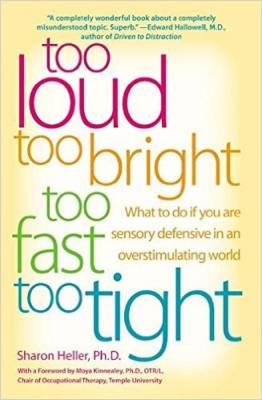
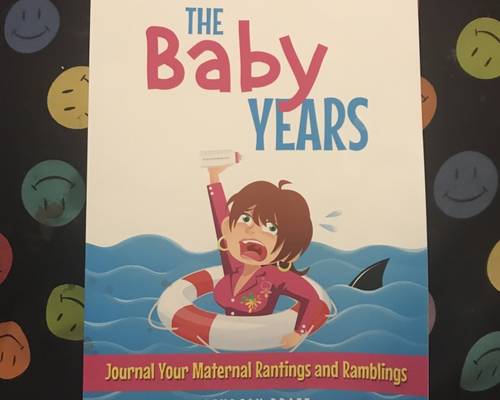





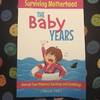



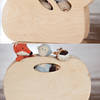

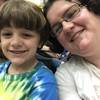


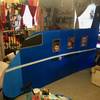
Comments
Thanks for such a great, informative post!
Debs @ https://tiger-mint.com
*Samantha- https://herjournal.blog